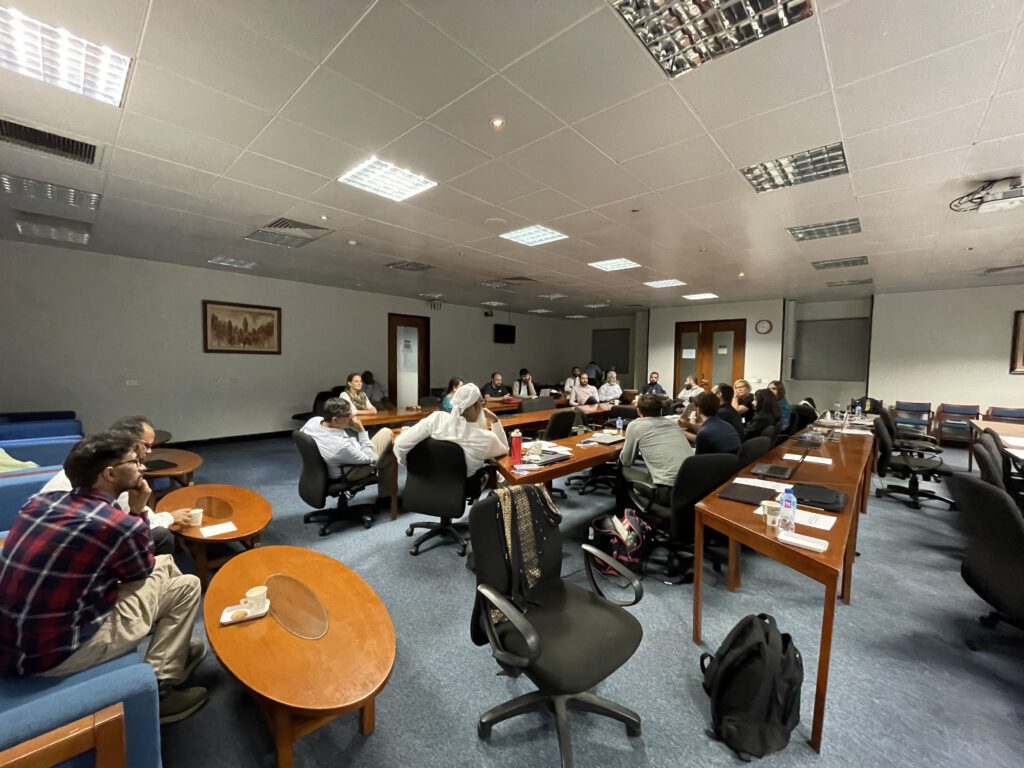The end of September 2022 marked a significant period for our project. After detailed planning, we began our travel to Pakistan with two primary goals. The first goal was to have the curriculum discussion at our partner university LUMS (Lahore University of Management Sciences). To achieve this goal, we planned a two-day discussion with representatives of all our partner universities with incredible support from our colleagues at CISPA (Helmholtz Center for Information Security). The aim was to get an in-depth understanding of the strengths and challenges of the curricula of the cybersecurity programs at our partner universities in Pakistan. Hence, we could identify the areas of improvement in their curricula and discuss different measures in the subsequent. In turn, we could enlighten curricula from the perspective of established international standards and the general call to implement more applied elements in the cybersecurity curricula.
To have a fruitful and structured discussion in Pakistan, we started our pre-work online before the travel. All partner universities reviewed their cybersecurity programs and compared them with international cybersecurity guidelines (e.g., ACM guidelines, Association for Computing Machinery) to identify areas of improvement to discuss afterward. Based on this pre-work Prof. Dr. Katharina Krombholz and her team from CISPA prepared an agenda for the two-day discussion containing different methods (e.g., research marketplace, focus groups, group activities) and topics such as career paths of graduates, competencies of cybersecurity students expected by the industry, interdisciplinarity of cybersecurity, assessment, and quality control.
Many lessons were learned during the two-days discussion. The importance of bridging the gap between theory and practice, possibilities to motivate students, balancing the focus of student projects (research vs. industry), and teaching transferable computing knowledge were identified as crucial aspects to be considered in the cybersecurity curriculum.
But it would have been a pity to be in Lahore and not add great memories to our academic discussion. Thanks to our hosts, we were able to take part in cultural activities and not missed learning and encountering the cultural elements. Experiencing the Pakistani culture enabled us to better understand the local standards, that will strengthen our future collaboration.
All in all, we want to thank our great hosts for the warm welcome in Lahore! In addition, we are thankful to all our partner universities and the CISPA team for accompanying us and constructing memories together as a team.
If you are interested to know about our next stop in Pakistan (achieving our second goal), read our next post on the National Conference at the Air University, Islamabad.
